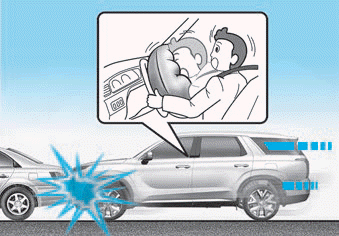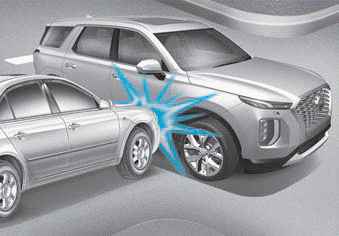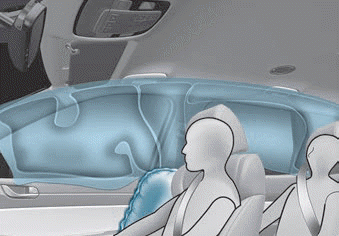Hyundai Palisade: Trailer Towing / Trailer towing equipment
Hitches
It's important to have the correct hitch equipment. Crosswinds, large trucks going by, and rough roads are a few reasons why you'll need the right hitch. Here are some rules to follow:
- The bumpers on your vehicle are not intended for hitches. Do not attach rental hitches or other bumper-type hitches to them. Use only a frame-mounted hitch that does not attach to the bumper.
- A HYUNDAI trailer hitch accessory is available at an authorized HYUNDAI dealer.
Safety chains
You should always attach chains between your vehicle and your trailer. Cross the safety chains under the tongue of the trailer so that the tongue will not drop to the road if it becomes separated from the hitch. Instructions about safety chains may be provided by the hitch manufacturer or trailer manufacturer. Follow the manufacturer's recommendation for attaching safety chains. Always leave just enough slack so you can turn with your trailer. And, never allow safety chains to drag on the ground.
Trailer brakes
If your trailer is equipped with a braking system, make sure it conforms to federal and/or local regulations and that it is properly installed and operating correctly.
If your trailer weighs more than the maximum trailer weight without trailer brakes loaded, then it needs its own brakes and they must be adequate. Be sure to read and follow the instructions for the trailer brakes so you’ll be able to install, adjust and maintain them properly. Do not tap into your vehicle's brake system. Trailer brakes must be applied separately from your vehicle's brake system.
WARNING
Do not use a trailer with its own brakes unless you are absolutely certain that you have properly set up the brake system. Use an experienced, competent trailer shop for this work.
 If you decide to pull a trailer
If you decide to pull a trailer
Here are some important points if
you decide to pull a trailer:
Consider using a sway control.You
can ask a trailer hitch dealer about
sway control...
 Driving with a trailer
Driving with a trailer
Towing a trailer requires a certain
amount of experience. Before setting
out for the open road, you must get
to know your trailer. Acquaint yourself
with the feel of handling and
braking with the added weight of the
trailer...
Other information:
Hyundai Palisade (LX2) 2020-2025 Owner's Manual: EPB malfunction indicator
This warning light illuminates if the ignition switch is set to the ON position and goes off in approximately 3 seconds if the system is operating normally. If the EPB malfunction indicator remains on, comes on while driving, or does not come on when the ignition switch is changed to the ON position, this indicates that the EPB may have malfunctioned...
Hyundai Palisade (LX2) 2020-2025 Service Manual: Emergency Call (eCall) Button
Repair procedures Removal 1. Disconnect the negative (-) battery terminal. 2. Remove the mounting screws (2EA). And then remove the overhead console. 3. Remove the overhead console after disconnect the connector...
Categories
- Manuals Home
- 1st Generation Palisade Owners Manual
- 1st Generation Palisade Service Manual
- AWD Operation
- Check Tire Pressure
- Auto Hold
- New on site
- Most important about car
Air bag inflation conditions

Front air bags
Front air bags and the driver's knee air bag are designed to inflate in a frontal collision depending on the the severity of impact of the front collision.


